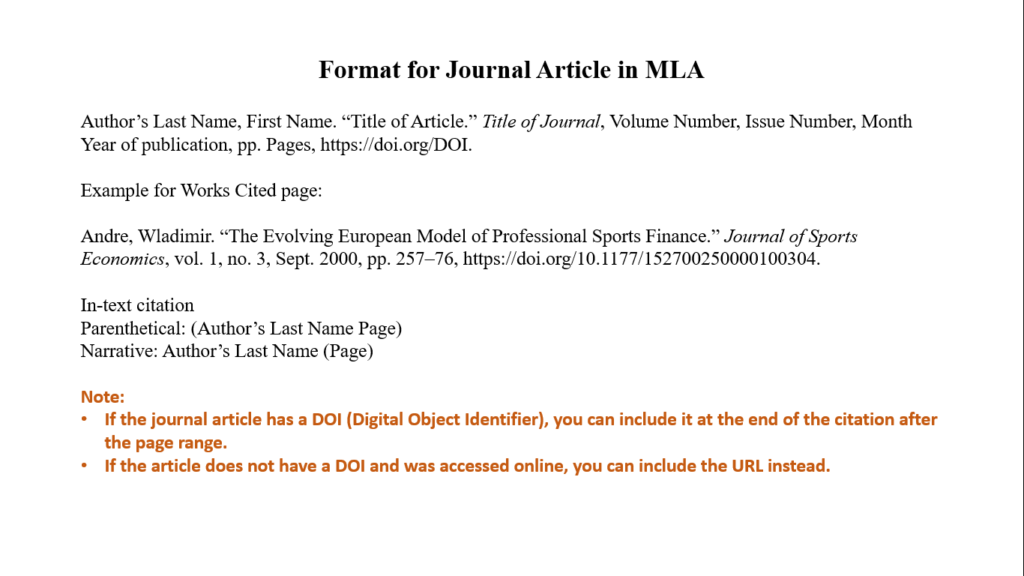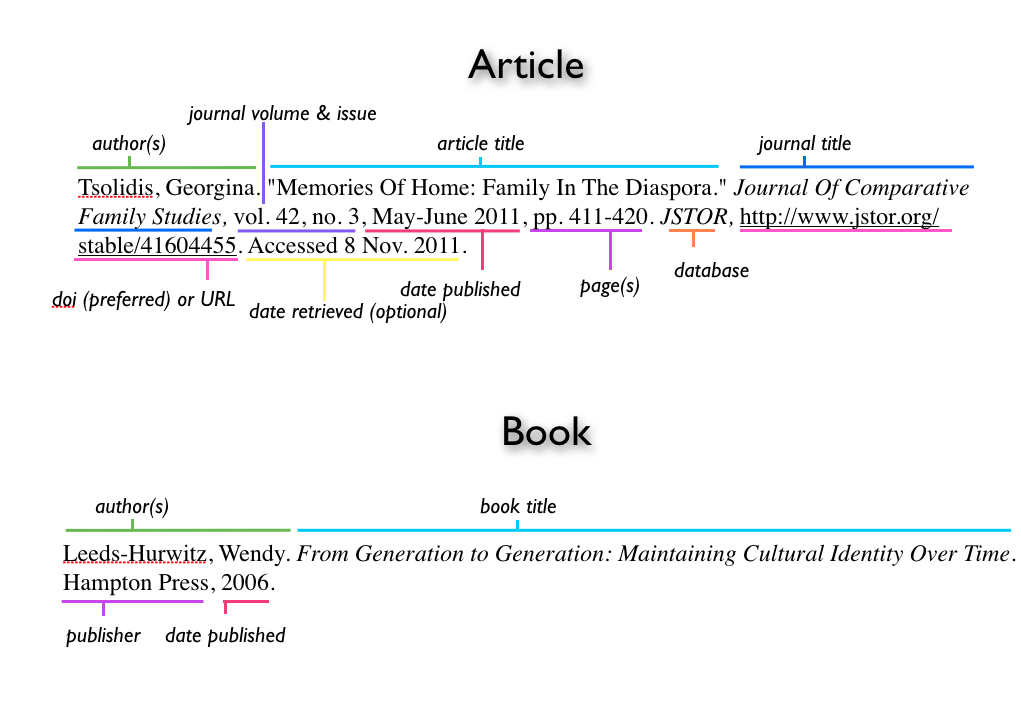Should I Include URL in Journal Citation: Best Practices Explained
Yes, you should include URLs in journal citations if they provide valuable context or access to the source. URLs help readers find the original work quickly.
Citing sources correctly in academic writing is crucial. URLs can enhance citations by offering direct access to online content. This is especially true for digital journals and articles. Including URLs ensures transparency and aids in verifying sources. It also supports the credibility of your work.
But, knowing when and how to include URLs can be tricky. In this blog, we will explore the benefits and guidelines for including URLs in journal citations. This will help you make informed decisions in your academic writing. Stay with us to learn more.

Credit: biz.libretexts.org
Historical Context
Traditional citation formats have long been used. These formats help readers find sources. They ensure proper credit to authors. Books, articles, and reports often follow these formats. Each source type has its own rules. These rules include author names, titles, and publication dates. URLs were rarely included in traditional citations. They were not considered essential. Printed sources were the main focus. With time, this has changed.
Digital resources have grown in use. Many sources are now online. This includes journals, articles, and books. URLs help readers find these online sources. Including URLs in citations is now common. It makes sources easy to access. Many style guides now recommend using URLs. This ensures proper access to digital content. Online sources are now just as important as printed ones. Digital resources are part of modern research.
Benefits Of Including Urls
Including URLs in journal citations helps readers access the source quickly. It makes it easy to verify the information. Readers can check the original content. They can see the full context. This builds trust. It shows the source is reliable.
URLs add credibility to your work. It demonstrates thorough research. Citations with URLs show you used valid sources. This can impress readers. It indicates a deeper understanding of the topic. Your work appears more trustworthy. It also benefits future researchers.
Challenges Of Including Urls
Link rot happens when a URL stops working over time. Websites change, move, or get deleted. This creates dead links. Dead links break the path to the source. Readers cannot access the original content. This is frustrating. It also affects the credibility of your work.
Different journals have different rules. Some require URLs in citations. Others do not. This creates confusion. Adhering to one standard can be difficult. Authors may struggle with which format to use. Consistency is hard to maintain. This affects the quality of the citation.

Credit: aquaklearofnewjersey.com
Best Practices For Url Inclusion
Include URLs if the source is online. This ensures easy access for readers. If the source is print, no need to add a URL. For online journals, always include the URL. This helps readers find the source quickly.
Place URLs at the end of the citation. Use full URLs and avoid short links. Make sure the URL is clickable if the document is digital. Use a consistent format for all citations. Example:
| Correct | Incorrect |
|---|---|
https://www.examplejournal.com/article |
examplejournal.com |
Case Studies
Many students use academic journals in their papers. Including a URL in the citation can be very helpful. It helps readers find the exact source quickly. Some journals have unique DOIs. These are special links that stay the same over time. A DOI is often better than a URL because it never changes.
Industry publications are also important sources. They often have useful data and insights. Adding a URL in the citation helps readers verify the information. It also shows that the source is reliable. Some industry publications may not have DOIs. In these cases, a URL is very useful. It guides the reader straight to the source.
Tools And Resources
Including URLs in journal citations enhances accessibility and credibility. It allows readers to verify sources easily and access additional information.
Citation Management Software
Citation management software helps organize and manage your references. These tools save time and reduce errors. Popular options include Zotero, EndNote, and Mendeley. They allow you to store, organize, and format citations easily. Additionally, they can generate bibliographies in various styles. This ensures your work is consistent and accurate.
Online Citation Guides
Online citation guides provide detailed instructions on citing sources. Websites like Purdue OWL and EasyBib offer step-by-step guides. They cover different citation styles like APA, MLA, and Chicago. These guides help you understand the correct format for each style. Also, they provide examples to make it easier to follow. Such resources are essential for accurate and reliable citations.

Credit: libguides.ucmerced.edu
Frequently Asked Questions
Should I Include A Url In A Journal Citation?
Yes, including a URL helps readers find the source online.
When Should I Include A Url In Citations?
Include a URL if the source is online and freely accessible.
Does A Url In Citations Improve Credibility?
Yes, it allows readers to verify the source themselves.
How Do I Format A Url In A Journal Citation?
Place the URL at the end of the citation, after other details.
Conclusion
Including a URL in your journal citation has clear benefits. It enhances accessibility, leading to more readers. Accuracy improves with a direct link to the source. Always check citation guidelines for your specific journal. Most prefer URLs, but some may not.
Balancing clarity and adherence to standards is key. Ultimately, choose what best supports your work’s credibility. Ensure your citations are complete and helpful. This approach strengthens your research’s impact and reliability.






